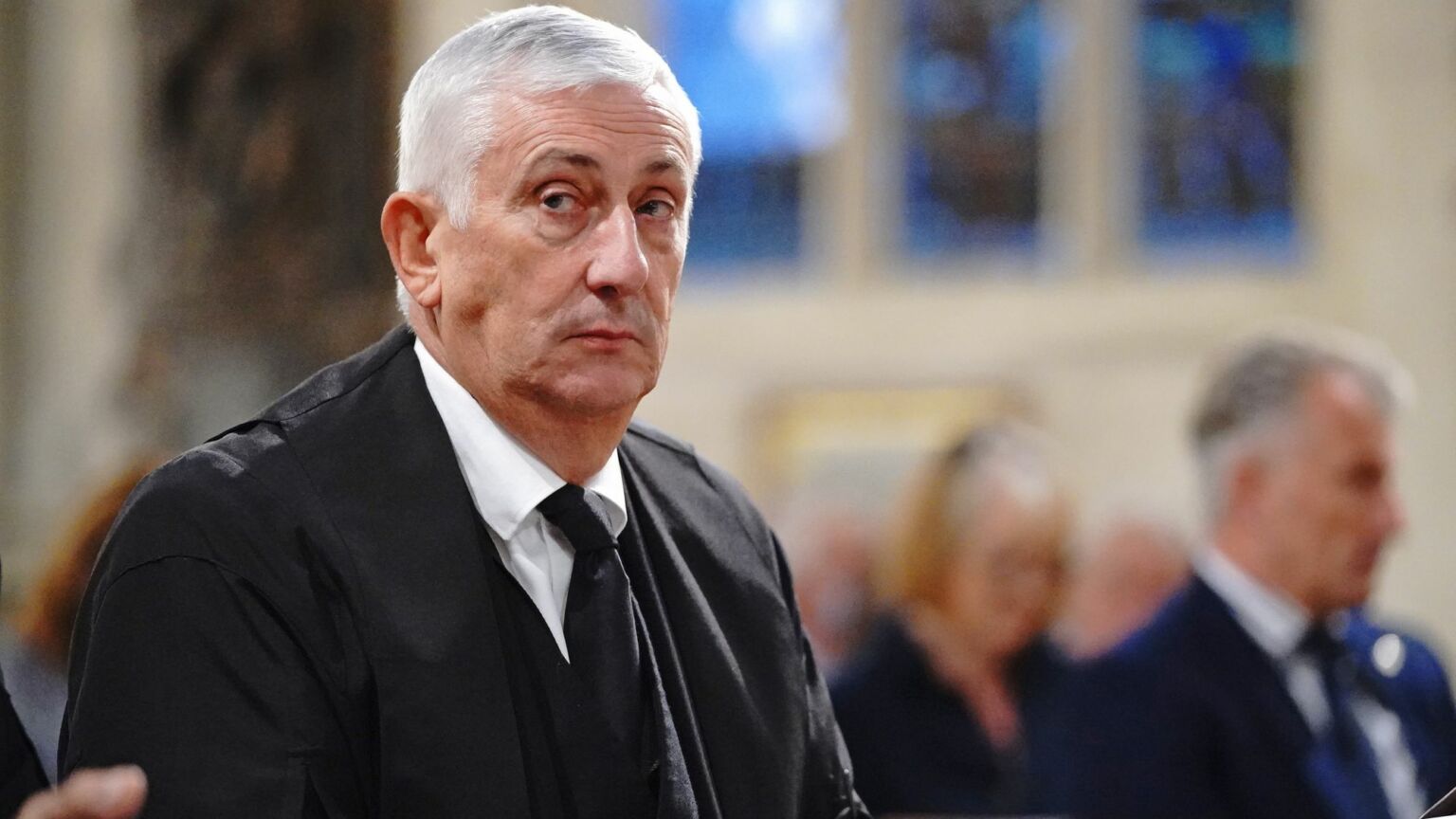Lindsay Hoyle’s war on free speech
The Commons speaker is abusing his position to demand tighter censorship of the internet.

Want to read spiked ad-free? Become a spiked supporter.
Lindsay Hoyle, the speaker of the House of Commons, told BBC Radio 5 Live this week that the UK government must tackle ‘misinformation’ on social media. ‘What we’ve got to do is make [sure] it’s factual, it’s correct what’s up there’, he said, adding, ‘the fact is misinformation is dangerous’.
There are two problems with Hoyle’s mini-rant. First, there’s the argument itself. Driving all arguments for state clampdowns on so-called misinformation is an elite desire to silence dissenting opinions and censor inconvenient facts. Hoyle is effectively urging the government to force social-media platforms to dictate what can and can’t be said online.
After all, who gets to decide, in Hoyle’s words, what is ‘factual’ or ‘correct’? Certainly no one in this mortal realm possesses the requisite omniscience. Indeed, we’ve seen countless examples over the past few years alone of views and even news stories initially damned by politicians and social-media companies as ‘misinformation’ or ‘disinformation’ only for their truth to emerge later on.
Think of the Hunter Biden laptop story, condemned as disinformation and censored by prominent social-media platforms in 2020. Today, virtually everyone acknowledges its veracity. Or think of the Covid lab-leak theory, loftily dismissed as a conspiracy theory in 2020, before being accepted three years later as the likely origin of the pandemic by the FBI and the US Energy Department.
Facts and even the truth itself cannot be decided in advance by governments. They are forged and found through robust and open debate.
This brings us to the second problem. By urging the government to effectively introduce a new regime of online censorship, Hoyle is exploiting his position as speaker of the House of Commons. This is meant to be a non-partisan, largely administrative role, ensuring the smooth functioning of the Commons. But in Hoyle’s hands, it has become a means to advance a distinctly political and authoritarian cause.
This is not a new problem. The rot really set in under Hoyle’s cartoonishly obnoxious predecessor, John Bercow. He spent a significant chunk of his decade in the big green chair brazenly enabling a Remainer-dominated parliament to obstruct Brexit. When Hoyle succeeded Mr ‘Bollocks to Brexit’ in 2019, many hoped for a return to convention and a non-partisan speaker. But that has not come to pass. Where Bercow abused the position of Speaker to stifle democracy, it seems Hoyle is doing so to stifle free speech.
The signs of Hoyle’s unwillingness to tolerate dissent have been there for a while. In 2022, Hoyle spoke out over Liverpool fans’ pantomime booing of Prince William during the FA Cup Final, describing it as ‘dreadful’ and ‘totally shameful behaviour’. But his call this week for a government ‘bill’ to clampdown on dissent and debate online takes his censorious crusading to a whole new level.
Moreover, while Hoyle has been coming out hard this week against the phantom threat of ‘misinformation’, he has shown himself far less willing to face down the actual threat of Islamist extremism. In February this year, he upended parliamentary convention to allow a soft Labour amendment on Gaza to be debated rather than the Scottish National Party’s far more anti-Israel one, despite it being the SNP’s ‘opposition day’. He claimed to be doing so because of credible threats made to MPs and on the house itself. ‘I never, ever want to go through a situation where I pick up a phone to find a friend, whatever side, has been murdered by terrorists.’ While he may have been thinking of David Amess MP, murdered by an Islamist in 2021, or PC Keith Palmer, stabbed to death by an Islamist outside parliament in 2017, at no point did he call the threat by its name. No, instead of naming and standing up to this threat, and allowing a debate over the SNP’s amendment to go ahead, he capitulated. He surrendered the cut and thrust of debate – the lifeblood of the very parliamentary democracy it is his duty to protect – to Islamist extremism.
It seems Hoyle sees very little value in freedom of speech. Both inside and out of parliament.
Tim Black is a spiked columnist.
Picture by: Getty.
Who funds spiked? You do
We are funded by you. And in this era of cancel culture and advertiser boycotts, we rely on your donations more than ever. Seventy per cent of our revenue comes from our readers’ donations – the vast majority giving just £5 per month. If you make a regular donation – of £5 a month or £50 a year – you can become a and enjoy:
–Ad-free reading
–Exclusive events
–Access to our comments section
It’s the best way to keep spiked going – and growing. Thank you!










Comments
Want to join the conversation?
Only spiked supporters and patrons, who donate regularly to us, can comment on our articles.